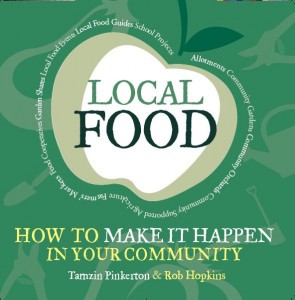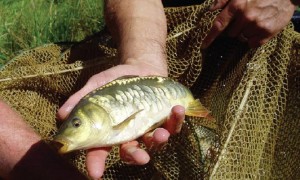7 Oct 2009
Carolyn Steel on How Food Shapes Our Cities
Here is one of the best talks I saw at TED 2009 in Oxford, Carolyn Steel, author of the excellent ‘Hungry City’.
Transition Culture has moved
I no longer blog on this site. You can now find me, my general blogs, and the work I am doing researching my forthcoming book on imagination, on my new blog.
Come find me at robhopkins.net
Showing results 121 - 125 of 267 for the category: Food.
Here is one of the best talks I saw at TED 2009 in Oxford, Carolyn Steel, author of the excellent ‘Hungry City’.
 A Review of ‘Local Food: how to make it happen in your community’ by Tamzin Pinkerton and Rob Hopkins. Green Books 2009. By James Howard.
A Review of ‘Local Food: how to make it happen in your community’ by Tamzin Pinkerton and Rob Hopkins. Green Books 2009. By James Howard.
There are some people that aren’t that fussed about food. To them it is merely functional, a fuel that keeps them going that appears in a package or on their plate, and very little time or thought is given to it. I cannot begin to understand that mindset. Food is so much more than merely an energy source – it is often a highly sensuous experience, full of variety and the focal point for wonderful social bonding in many forms. Yes, I love food, always thinking about my next meal and who I will enjoy it with.
 For today’s post, I am handing over to Jimmie Hepburn, who farms organic carp quite near to me here in Devon. During the Middle Ages, carp farming was commonplace, but once we were able to harness the power of ancient sunlight to plunder the sea, it mostly died out. Jimmie’s project, Aquavision, is beginning to make freshwater aquaculture financially viable. He wrote an excellent article on the latest edition of ‘Organic Farming’ magazine (Issue 101: for subscription details call 0117 914 2447). I thought it was rather wonderful, and asked to be able to reproduce it here. You can read the full article here.
For today’s post, I am handing over to Jimmie Hepburn, who farms organic carp quite near to me here in Devon. During the Middle Ages, carp farming was commonplace, but once we were able to harness the power of ancient sunlight to plunder the sea, it mostly died out. Jimmie’s project, Aquavision, is beginning to make freshwater aquaculture financially viable. He wrote an excellent article on the latest edition of ‘Organic Farming’ magazine (Issue 101: for subscription details call 0117 914 2447). I thought it was rather wonderful, and asked to be able to reproduce it here. You can read the full article here.
 Food security and the need for GIS models
Food security and the need for GIS models
As expected, the recent paper ‘Can Totnes and district feed itself?’ has started stirring things up. An intriguing response comes from Colin Tudge, a director of LandShare CIC (co-funders of the research) and leader of the Campaign for Real Farming. Colin’s thesis is that the food security issue is a simple matter of feeding the population as far as practical from local sources, recognising that some trade between specialist production areas will always be necessary. He argues that we simply need macronutrients (energy foods and protein), mainly in the shape of grains, and micronutrients – vitamins and minerals – and that by growing lots of wheat and encouraging more urban horticulture we can feed ourselves. I’m brutally over-summarising, of course, but he is keen to keep things simple.
Not much more to say about it really. Thanks to Positive TV and the Ecologist for making this available.